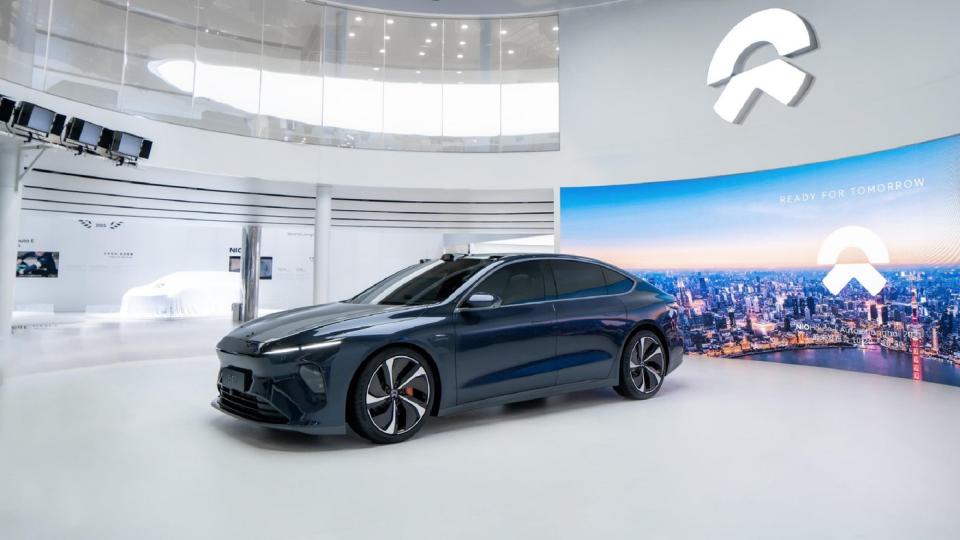When the internet began to go mainstream 30 years ago, it completely changed the growth trajectory of companies in the U.S. and around the world. After decades of patient waiting, Wall Street and investors have identified what they believe to be the next breakthrough innovation that will change the growth trajectory of American companies: artificial intelligence (AI).
AI relies on software and systems to handle tasks typically assigned to humans. What makes this technology so attractive is the ability of AI software and systems to learn and evolve over time without human intervention or oversight, making AI effective in virtually every field and industry.

Wall Street and its analysts have not overlooked the long-term potential of artificial intelligence. The majority of Wall Street experts and financial institutions’ price targets suggest upside for the market-leading AI stocks. However, this does not mean that the outlook for all AI stocks is the same.
Most experts expect hardware to play a key role in AI. NVIDIA (NASDAQ: NVDA)While its value is expected to rise over the next 12 months, two other AI stocks could surpass Nvidia by more than doubling investor money over the next 12 months, according to high-water mark price targets set by Wall Street analysts.
Wall Street’s leading artificial intelligence stocks may be in for a shaky start
Of the more than 30 analysts and commentators who have spoken out about Nvidia, none are more optimistic about the company’s future than Rosenblatt’s Hans Mosesmann.
Following NVIDIA’s historic 10-for-1 stock split in early June, Mosesman raised his and the company’s price target on the company from $140 to $200 per share, implying a valuation of roughly $5 trillion and a further 59% upside from its July 5 closing price.
Mosesman’s lofty price target is premised on NVIDIA maintaining dominance in two key aspects of the AI revolution. The first is a dominant market share in AI-powered graphics processing units (GPUs). TechInsights analysts found that NVIDIA will account for 3.76 million of the 3.85 million AI-GPUs shipped in 2023. Mosesman expects that a clear computing advantage and a backlog of upcoming next-generation GPU architectures (Blackwell and Rubin) will make NVIDIA the go-to hardware provider for AI-accelerated data centers.
Mosesman also expects NVIDIA to benefit from its CUDA platform, a toolkit that developers use to build large-scale language models. The software aligns perfectly with NVIDIA’s hardware exclusivity, which keeps its AI-focused business locked within the company’s ecosystem of products and services.
Despite this overwhelming enthusiasm surrounding Nvidia, the company’s road ahead is set to be significantly tougher than the past 18 months.
For one, competition is rapidly increasing: In addition to competing with outside AI-GPU developers, Nvidia’s top four customers by net revenue are all developing their own AI chips for their data centers. Even if Nvidia’s chips maintain their computing dominance, the mere presence of additional AI-GPUs will minimize the scarcity that has driven prices of Nvidia’s GPUs into the stratosphere and depressed profit margins.
Moreover, history disagrees with the majority of Wall Street analysts. Every next-gen innovation, technology, and trend in the past 30 years has weathered a bubble, including the advent of the internet. No company has benefited more directly from the rise of AI than Nvidia, so it’s likely to be hit the hardest when the AI bubble pops.
While Nvidia’s road ahead may be difficult, two Wall Street analysts believe two other AI stocks could overtake the artificial intelligence leader over the next 12 months.


Nio: Expected to rise 116%
The first AI stock that could overtake Nvidia on a return basis, at least over the next 12 months, is the China-based electric vehicle (EV) maker. Nio (NYSE: NIO). according to Morgan Stanley According to analyst Tim Xiao, NIO could hit $10 per share, which would represent a 116% increase from the stock’s closing price on July 5.
One factor fueling Xiao’s optimistic outlook is the rapid growth of NIO’s production and delivery. Specifically, NIO is averaging about 5,000 orders per week, or about 20,000 deliveries per month. Having weathered the worst of the COVID-19 pandemic, which led to strict lockdowns in China, has ironed out supply chain kinks that previously hindered NIO’s production expansion.
To add to this point, Nio has transitioned its fleet of vehicles to the new NT 2.0 platform, which incorporates a number of advanced driver assistance system upgrades, including self-driving capabilities, an aspect of Nio’s AI integration. Since transitioning to NT 2.0, Nio has seen increased demand for its EVs.
Xiao and his team also hope to launch NIO’s second car brand, Onvo, in 2024. While NIO has focused primarily on higher-income customers with its existing lineup, Onvo will be a lower-priced, family-oriented battery EV brand that could become a more direct competitor to brands like EV. Tesla In China.
The final piece of the puzzle is that the company is cash-rich: It ended the March quarter with about $6.3 billion in cash, cash equivalents, and various investments. That gives NIO plenty of breathing room to introduce new EVs and expand production.
What all of this boils down to is that building a car company from scratch is no easy task. Nio is still burning through cash and is nowhere near turning a profit. Onvo and its battery service subscriptions could help it boost profit margins, but Nio is still in the early stages and will need shareholder patience.
Baidu: Expected to grow 102%
The second artificial intelligence stock expected to more than double investors’ money and overtake NVIDIA is another Chinese company. Baidu (NASDAQ:BIDU)According to Benchmark analyst Huang Zhang, Baidu’s stock price is expected to rise to $180 per share over the next 12 months, or 102% from its closing price on July 5.
Baidu is best known for its market-leading internet search engine. Its search engine accounted for about 53% of internet searches in June in China, the world’s second-largest economy by gross domestic product, according to data from GlobalStats. With a few exceptions, Baidu has controlled between 50% and 85% of monthly internet searches in China for the past decade.
As the leading internet search engine in China, Baidu is often able to wrest significant advertising pricing control from companies. China’s COVID-19 recovery has been more bumpy than initially expected, but Baidu, which maintains a clear advertising advantage, is unlikely to struggle for long.
But Baidu’s ancillary AI business could be its biggest growth driver over the next decade (and beyond). Baidu’s AI Cloud is China’s fourth-largest cloud infrastructure services platform by total spending. Enterprise spending on cloud services is in the early stages of increasing, and cloud service margins are much more profitable for Baidu than advertising margins.
Additionally, Baidu is also the parent company of Apollo Go, the world’s leading autonomous ride-hailing service. As of April 19, Apollo Go has recorded more than 6 million rides since its launch.
Like Nio, Baidu has a treasure trove of available capital. The company ended the first quarter with about $26 billion in cash, cash equivalents, and various investments. Baidu trades at just 7.5 times forward earnings, so the company’s risk/reward balance is arguably in favor of upside.
Should I invest $1,000 in Nvidia right now?
Before you buy Nvidia stock, consider the following:
of Motley Fool Stock Advisor The analyst team Top 10 Stocks Here are the stocks investors should buy right now… and Nvidia wasn’t among them. The 10 stocks selected have the potential to generate big gains over the next few years.
Things to consider NVIDIA This list was created on April 15, 2005…If you invested $1,000 at the time of recommendation, That comes to $805,042.!*
Stock Advisor With portfolio construction guidance, regular updates from our analysts, and two new stock picks every month, we provide investors with an easy-to-follow blueprint for success. Stock Advisor The service is More than 4 times First S&P 500 recovery since 2002*.
View 10 stocks »
*Stock Advisor returns as of July 8, 2024
Sean Williams invests in Baidu. The Motley Fool invests in and recommends Baidu, Nvidia, and Tesla. The Motley Fool has a disclosure policy.
Forget NVIDIA: These two artificial intelligence (AI) stocks are expected to more than double investors’ money, according to Wall Street analysts.This was first published by The Motley Fool.


